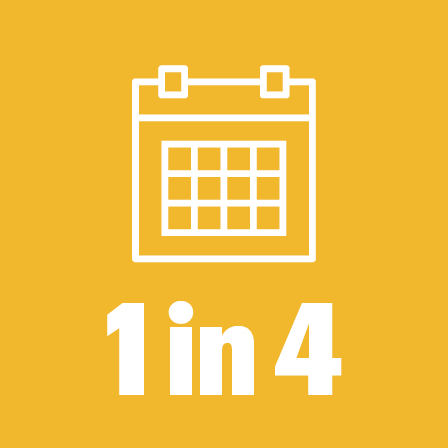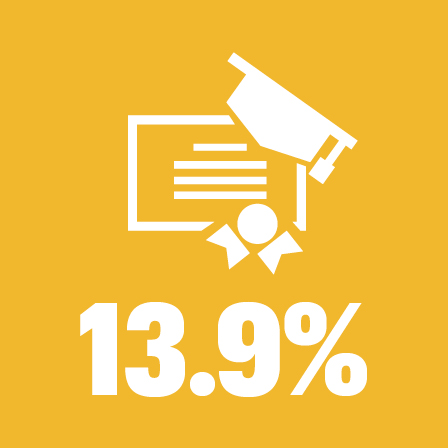
Project examples

Missouri school districts have reduced class time to four days per week in response to the teacher shortage

Percentage of residents 25 years old and over in Missouri rural counties without a high school degree – almost twice the rate in urban counties (8.1%)

Decrease in teacher education students statewide over the last decade
From its founding in 1865 as the State Normal School for teachers, the University of Missouri College of Education and Human Development (CEHD) has maintained a deep and sustained commitment to rural schools and communities. Today, that commitment is reflected across six interconnected academic units and more than a dozen outreach centers working to strengthen education, support families, and improve communities across the lifespan.
Located in the heart of Missouri, CEHD faculty and outreach teams have long partnered with rural districts throughout the state. Their work addresses school mental health, special education, literacy, STEM education, school climate, technology integration, and more. A coordinated framework now strengthens and aligns these efforts to expand impact and deepen engagement statewide.
The Mizzou Rural Education Initiative brings together the College’s research, preparation programs, and outreach work to address the evolving needs of rural schools and communities. By aligning expertise across disciplines, the initiative advances practical solutions grounded in partnership and evidence.
CEHD plays a central role in strengthening Missouri’s educator workforce and supporting innovation in rural education.
Growing the Teacher Pipeline
The University of Missouri is expanding access to high-quality teacher preparation across all grade levels and subject areas. The College of Education and Human Development has broadened online teaching degree pathways to increase access for individuals in rural communities who cannot relocate or leave the workforce to attend a residential program. Coursework is delivered online, while all field and clinical experiences remain in-person and university-supervised in the communities where students live and plan to work. This model expands opportunity statewide while maintaining rigorous preparation standards.
Supporting Rural Recruitment and Retention
Targeted supports strengthen the rural teacher pipeline and long-term retention. Students placed in rural communities are eligible for donor-funded stipends ranging from $1,000–$5,000 per semester. Since 2024, 68 students have received this support, reducing financial barriers and encouraging rural employment.
The MU Partnership for Educational Renewal (MPER) Recruitment Fair connects education students with rural districts seeking teachers, strengthening hiring and long-term placement in rural schools.
Through the Office of Clinical Experiences and Partnerships, rural placements are intentionally embedded within preparation programs. The Pair Mentoring Program further supports retention by strengthening relationships between student teachers and host teachers early in each placement.
Investing in Innovation
The College of Education and Human Development funds research and outreach projects that address real challenges in rural communities. Faculty and outreach leaders advance competitive, collaborative initiatives that build on historic strengths while encouraging new ideas and cross-campus partnerships. These investments expand program reach, strengthen implementation, and generate solutions informed by local context.
Together, these coordinated efforts reflect a sustained commitment to rural Missouri. By strengthening educator preparation and funding impactful research and outreach, the University of Missouri continues to serve as a statewide partner in advancing strong rural schools and communities.